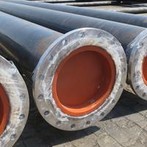Do you know the role of important elements in steel?
Steel is one of the most versatile materials used in manufacturing industries. It is strong, durable and easy to work with, making it a popular choice in construction, automotive, aerospace and many other industries. One of the key factors that determine the properties of steel is the presence of alloying elements. These elements are added to steel to improve its strength, toughness, corrosion resistance, and other properties. In this article, we will discuss the role of different alloying elements in steel.
Carbon (C)
Carbon is the most important element in steel. It is responsible for the hardness and strength of steel. When carbon is added to iron, it forms iron carbide, which is harder and stronger than iron. The amount of carbon in steel varies from 0.05% to 2.0%. Low-carbon steel (up to 0.25% C) is soft and ductile, while high-carbon steel (more than 0.6% C) is hard and brittle.
Silicon (Si)
Silicon is added to steel to improve its strength and toughness. It also helps to deoxidize the steel and remove impurities. Silicon is usually added in small quantities (up to 2.5%) to low-alloy steels.
Manganese (Mn)
Manganese is added to steel to improve its strength, hardness, and toughness. It also helps to deoxidize the steel and remove impurities. Manganese is usually added in small quantities (up to 1.5%) to low-alloy steels.
Chromium (Cr)
Chromium is added to steel to improve its corrosion resistance, hardness, and toughness. It forms a thin, protective layer on the surface of the steel, which prevents rusting and corrosion. Chromium is usually added in small quantities (up to 5%) to low-alloy steels.
Nickel (Ni)
Nickel is added to steel to improve its strength, toughness, and corrosion resistance. It also helps to increase its ductility and resistance to high temperatures. Nickel is usually added in small quantities (up to 5%) to low-alloy steels.
Molybdenum (Mo)
Molybdenum is added to steel to improve its strength, toughness and corrosion resistance. It also helps to increase its resistance to high temperatures. Molybdenum is usually added in small quantities (up to 1%) to low-alloy steels.
Copper (Cu)
Copper is added to steel to improve its corrosion resistance and toughness. It also helps to improve its electrical conductivity and thermal conductivity. Copper is usually added in small quantities (up to 1%) to low-alloy steels.










